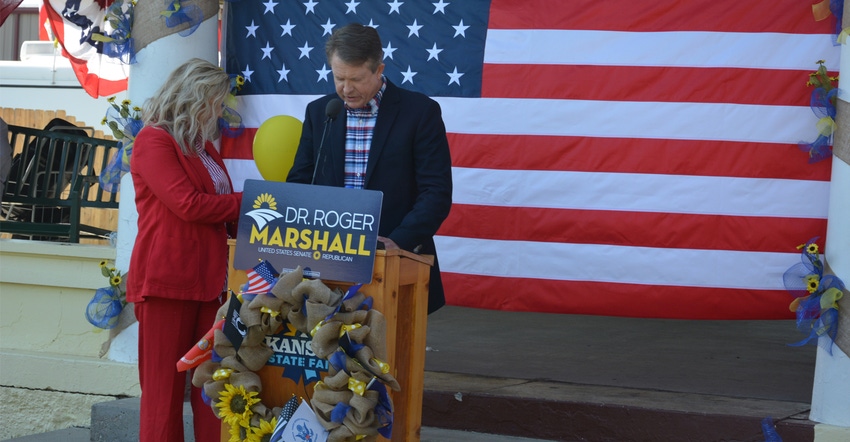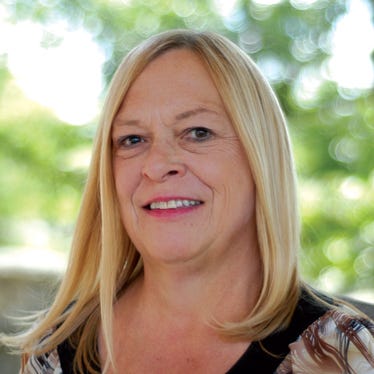
The panelists at the annual WIBW-Radio Ag Issues Forum at the Kansas State Fair did their best to speak optimistic words on the prospects of new trade agreements, but they stopped far short of promising anything. Between the lines, the message was pretty clear: Don’t get your hopes up for a speedy end to the trade war or a rapid round of market expansion.
U.S. Trade Representative Greg Doud was on the stage with First District Congressman Roger Marshall and Kansas Agriculture Secretary Mike Beam to give fairgoers their thoughts on the importance of getting trade deals done.
Doud told the audience that ratifying the new U.S.-Mexico-Canada Agreement is the key to getting things moving on other fronts. He said the world is waiting to see if the U.S. can succeed at what should be the easiest of the trade tasks at hand — ratifying an already-signed, updated agreement with its two largest trading partners. Of $145 billion in agricultural exports last year, $44 billion went to Canada and Mexico.
There are some promising signals. Talks on the trade deal continued through the summer recess, and Congress is back in session and presumably could bring a bill to the floor relatively quickly. But it is a revenue bill and therefore must originate in the Democratic-controlled House of Representatives. That leaves the timing up to Speaker Nancy Pelosi.
On other fronts, Doud said there is “an agreement in principle” for a trade deal with Japan. But he added that nothing has yet been signed and negotiators are still “dotting the i’s and crossing the t’s" to arrive at final language for an agreement that could be signed. After signing, it would still require ratification by both the U.S. Congress and the government of Japan.
Considering that we are approaching a year after the signing of the USMCA without ratification, a lot of time could go by before any agreement reached in the near future actually takes effect. If Trump had taken advantage of his Republican majority in both houses and assumed the traditional Republican free trade stance, he could have pressed for ratification of the TPP and had a free trade agreement with Japan — not to mention 10 other countries including updates with Mexico and Canada — during his first month in office.
Doud said negotiators are also hoping to complete deals soon with the United Kingdom (presuming Brexit does occur on Oct. 31) and with the European Union. But he acknowledged that resolving the trade war with China to get U.S products flowing back into what was once a major trading partner, especially for soybeans and grain sorghum, will require “time and patience.”
He said China is difficult because it’s not just about the tariffs, but about the whole effort to get China to play by the rules on intellectual property rights, stock reporting and the creation of artificial phytosanitary and GMO barriers. Marshall said he is trying to get China back to buying ag products while we keep working on the rest. Excuse me, but isn’t that where we started two years ago? So, two years of bleeding and subsidies later, we settle for getting back to square one?
Doud said he has spent countless hours in talks with other trade negotiators, explaining in detail just how robust and thorough the U.S. regulatory and inspection system is when it comes to food safety. He said Congress has made sure that the funding is there to support the “robustness of our regulatory system,” and that simply explaining the system should be sufficient to convince potential customers of the safety of U.S. food.
I hope he’s right. But it strikes me that an administration that spends an awfully lot of time bragging about rolling back regulations on just about everything — from ensuring clean air and water to emissions at coal-fired power plants and other industrial operations — might find itself short of credibility on a plea for trust in “robust regulation.”
All in all, it’s not looking too promising. But I strongly agree with one piece of advice from Doud. He said agriculture needs to “speak with one voice.”
Yes, we do. Loud and clear. And the message needs to be, “End the trade war. Restore our markets.”
About the Author(s)
You May Also Like






